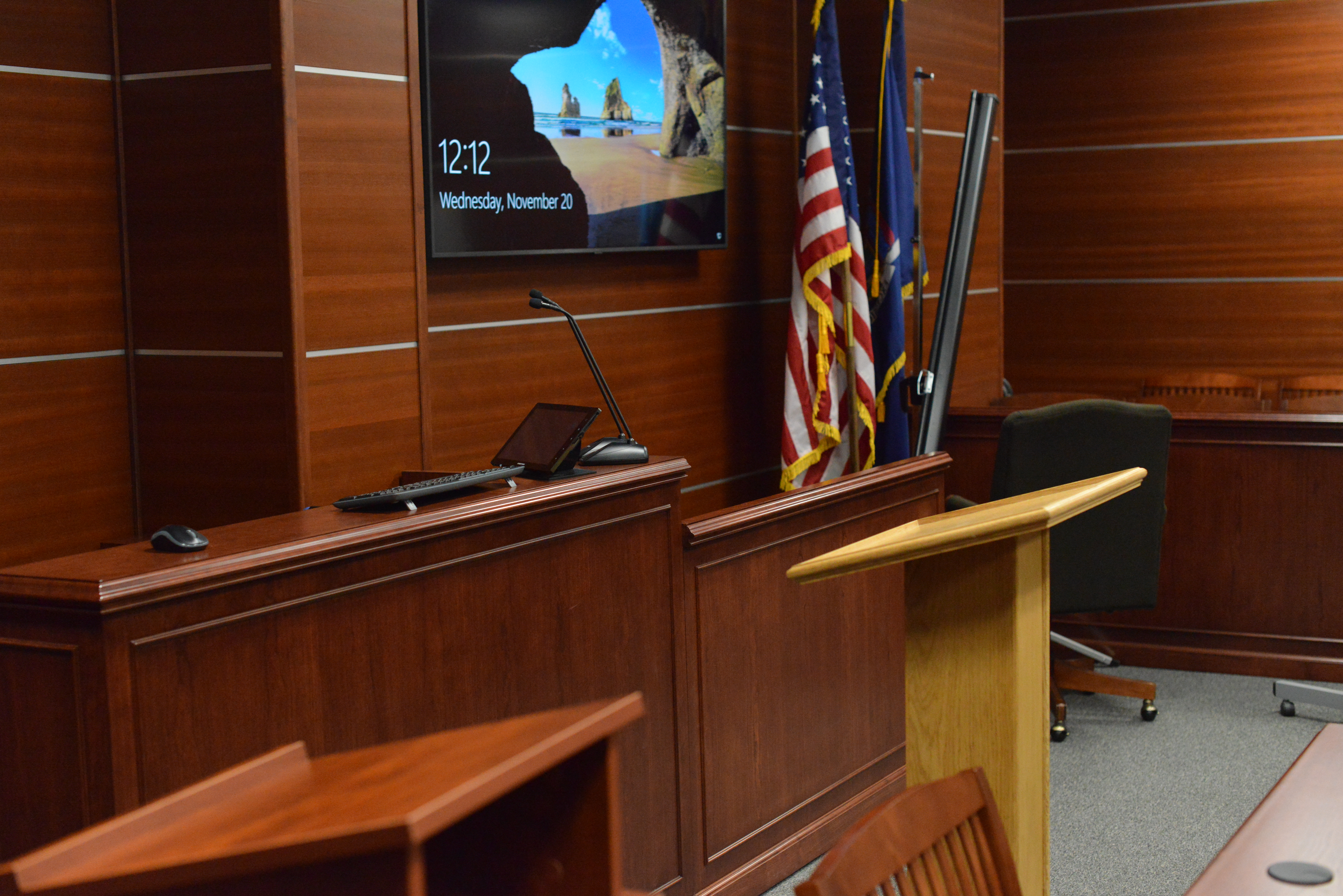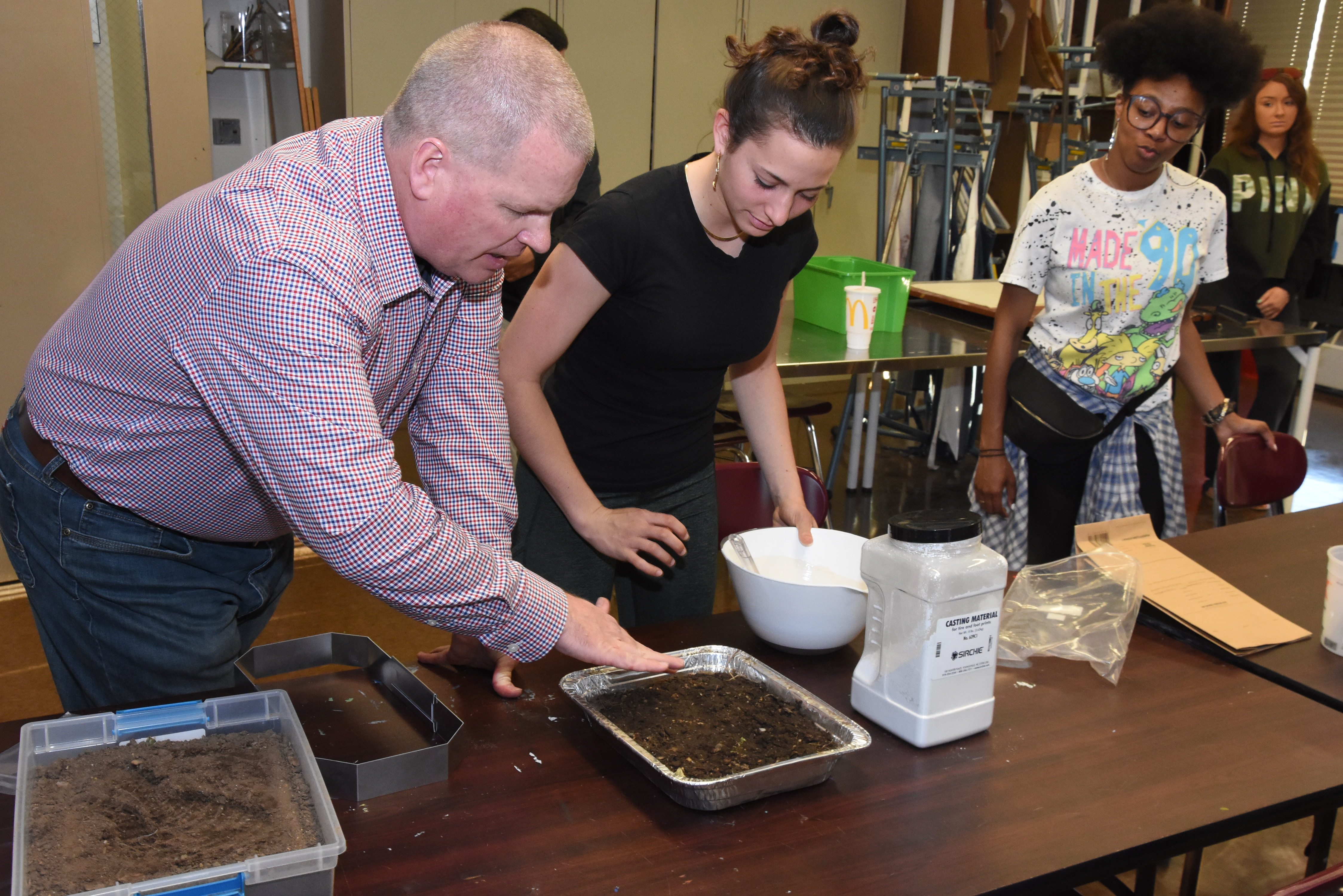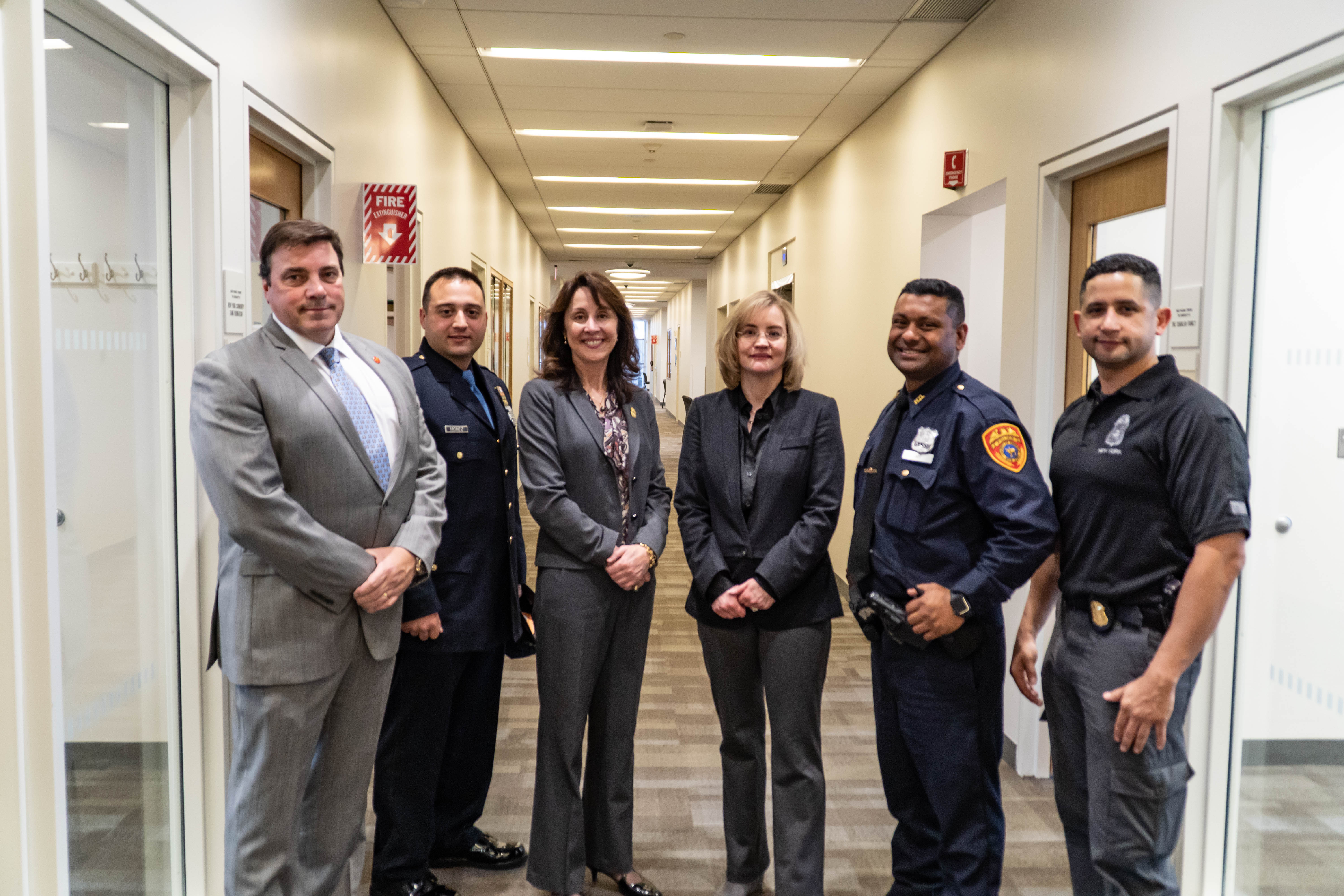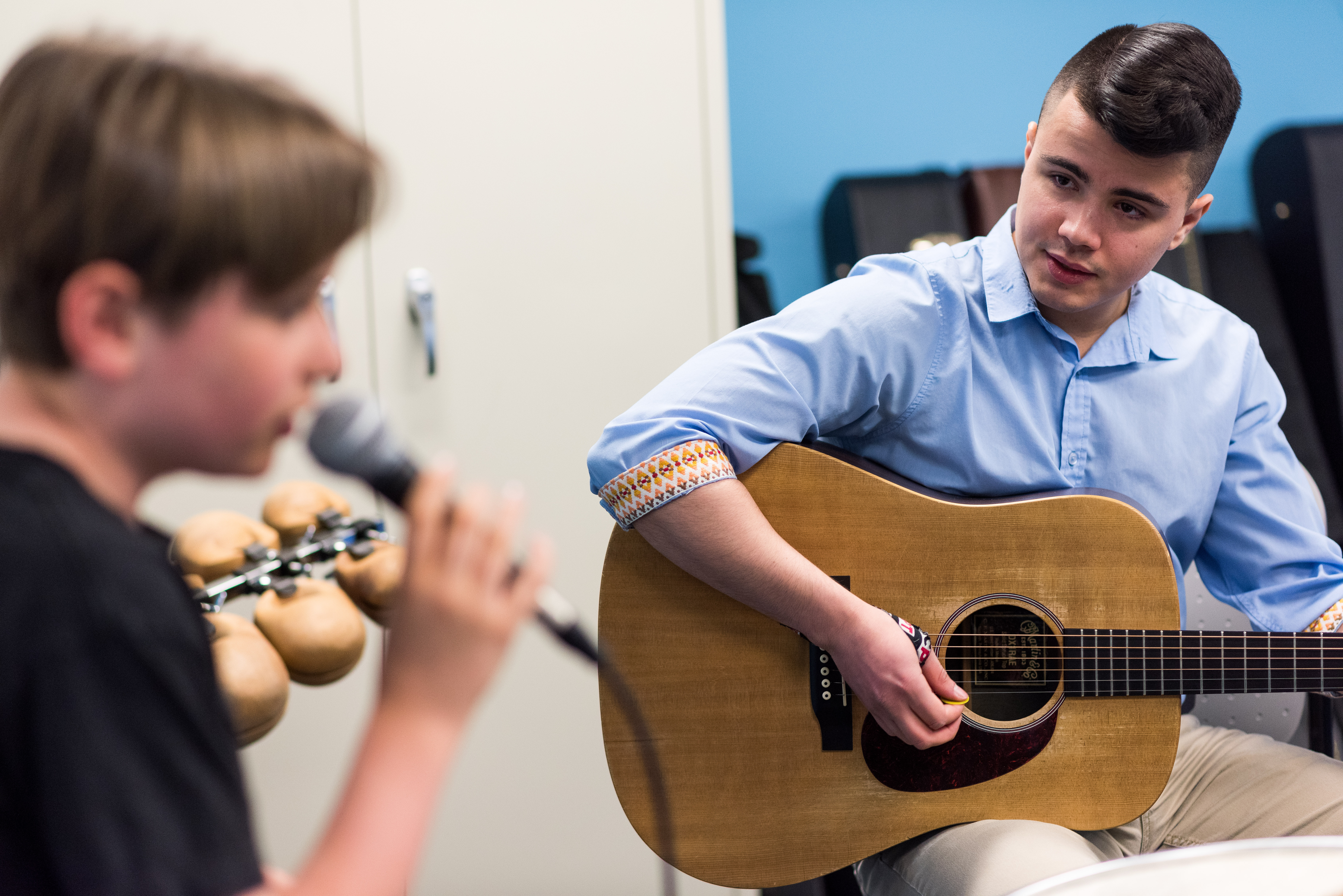Graduate Programs

Graduate Programs in the School of Arts and Sciences
Molloy's graduate programs in the School of Arts and Sciences equip students with the critical skills vital to the liberal arts – disciplined thinking, judgment and cogency, an understanding of value systems and personal commitment, writing, speaking, critical analysis and a collaborative work ethic.
Molloy's graduate programs are grounded in liberal arts learning but are designed to provide students with the professional skills required to succeed in their careers. Whether our Criminal Justice or Music Therapy graduate program, students will find a demanding but transformational curriculum:
- A student-center learning environment nourished with scholarly and creative activity
- Faculty who are experts in their field
- Exposure to vibrant communities that Molloy expects students will become members of and serve
Molloy University is a place where students will thrive and grow into the career-ready professional they want to become.
Molloy University - School of Arts and Sciences Programs of Study
Advance Your Career and Earn a Respected M.S. Degree in Criminal Justice
 Molloy University’s Master of Science in Criminal Justice program offers a rigorous and flexible curriculum designed to prepare students for leadership roles in the criminal justice field. With a 15-credit core and a wide range of electives, students complete a 33-credit degree that emphasizes critical thinking, ethical decision-making, and advanced research skills. Courses are offered year-round, including summer sessions, allowing for flexible scheduling. Graduates emerge with a deep understanding of justice systems, constitutional rights, and democratic principles—ready to make a meaningful impact in their communities.
Molloy University’s Master of Science in Criminal Justice program offers a rigorous and flexible curriculum designed to prepare students for leadership roles in the criminal justice field. With a 15-credit core and a wide range of electives, students complete a 33-credit degree that emphasizes critical thinking, ethical decision-making, and advanced research skills. Courses are offered year-round, including summer sessions, allowing for flexible scheduling. Graduates emerge with a deep understanding of justice systems, constitutional rights, and democratic principles—ready to make a meaningful impact in their communities.
If you're looking to advance your career in the Criminal Justice and Legal industry but need flexibility, Molloy University’s flexible Criminal Justice Master of Science degree offers three unique program options 1- Online, 2- Hybrid, 3- Traditional in person, all designed to help you succeed and earn your degree —on your schedule.
Our commitment to personalized attention with small class sizes, hands-on learning experiences, rigorous curriculum, and expert faculty ensures a well-rounded education that will shape your future. Rooted in Dominican ideals of study, service, spirituality, and community, our hybrid CRJ graduate program offers a transformative experience, preparing you for both professional success and personal growth.
Creating Future Leaders in the Criminal Justice Industry

| What You'll Learn in the Graduate Criminal Justice Program | Program Requirements |
|---|---|
| Analyze various criminal justice theories, giving you a well-rounded understanding of crime and punishment. | The applicant must possess an appropriate Baccalaureate Degree in the social sciences from an accredited college or university. |
| Assess the role of judicial review and Constitutional rights, which is crucial for any role within the legal system. | Applicants must submit an official transcript of all undergraduate and graduate work. |
| Evaluate existing criminal justice policies and research, building leadership skills. | Only credit from institutions that are accredited by their regional higher education body will be accepted for transfer into the Graduate Criminal Justice Program. |
| Apply ethical theories to specific situations, an essential skill for decision-making in real-world scenarios. | Applicants must have a GPA of at least 3.0 for matriculation. |

What Can You Do with an M.S. in Criminal Justice?
Interested in a career that has a direct impact on people’s lives? Embarking on a master’s in criminal justice opens the door to a wide array of roles that are central to serving the community and upholding justice where you can make a meaningful impact. The criminal justice field has unlimited career paths that are rewarding, each contributing significantly to public safety and societal well-being. Whether it's in crime analysis, aiding law enforcement with critical insights, or directly in law enforcement roles, maintaining public order and safety, research in the social sciences, or criminology, each position plays a crucial role. Your career options are endless.
Become a Compassionate Leader with an M.S. Degree in Music Therapy

Molloy University’s M.S. in Music Therapy program offers a dynamic blend of academic rigor, clinical training, and creative exploration. Designed for both new and experienced music therapy professionals, the program prepares students to use music as a powerful tool for healing and personal growth. With hands-on experience in diverse clinical settings and specialized training in approaches like Nordoff-Robbins (NRMT) and Analytical Music Therapy (AMT), the program is designed to prepare students for advanced clinical practice in music therapy and music psychotherapy, supported by studies in research, ethics and diverse models of practice. The program is approved by the New York State Education Department, fulfills requirements for licensure as a Creative Arts Therapist (LCAT), and has also been approved by the American Music Therapy Association (AMTA), and supports students in becoming compassionate, reflective, and highly skilled practitioners. Molloy University is an accredited institutional member of the National Association of Schools of Music (NASM).
Learn More About our Master of Science in Music Therapy Program
Master of Science in Music Therapy
| What You'll Learn | Program Requirements |
|---|---|
| Understand client needs from various theoretical perspectives and clinical models | Have achieved a minimum of a 3.0 overall grade point average in undergraduate work. (Students having a GPA between 2.8 and 3.0 may be accepted on probationary status.) |
| Utilize and apply advanced music psychotherapy skills in clinical practice | Submit two (2) letters of reference from former college professors and/or professional associates. |
| Adhere to ethical standards of practice in music therapy | Pass an audition and participate in a personal interview with the Graduate Music Therapy faculty |
| Understand and conduct research with the goal of producing scholarly writing and presentations in music therapy | If the student has completed a music degree, the following prerequisites must be completed: Abnormal Psychology and Developmental Psychology and if the student has a degree in a related field that is not music, such as psychology, they may need to complete prerequisite music courses or fulfill competencies in the following areas: Music theory and sight singing, Harmony and Music History. |

What Can You Do with an M.S. in Music Therapy?
If you're looking for a career that makes a real difference, Molloy University’s M.S. in Music Therapy prepares you to use music as a powerful tool for healing and transformation. Through a blend of clinical training, research, and hands-on experience, you’ll gain the skills needed to thrive in diverse professional settings. Our graduates go on to impactful careers in hospitals, rehabilitation centers, schools, nursing homes, outpatient clinics, hospices, and psychiatric facilities—bringing the therapeutic power of music to those who need it most.